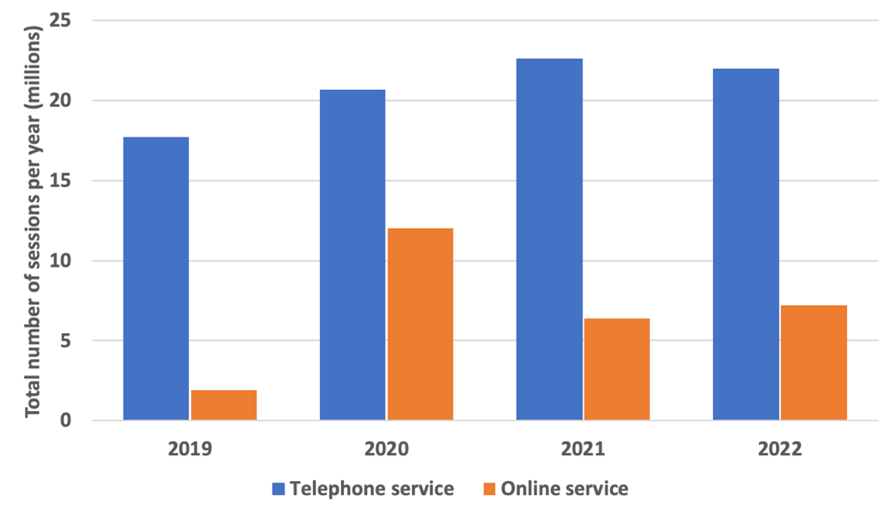
New research carried out by PAGB has revealed shifts in the public’s use of apps and other digital interventions in managing self-treatable health conditions. Digital tools including NHS website and 111 key to self-care but Government must better promote trustworthy information online
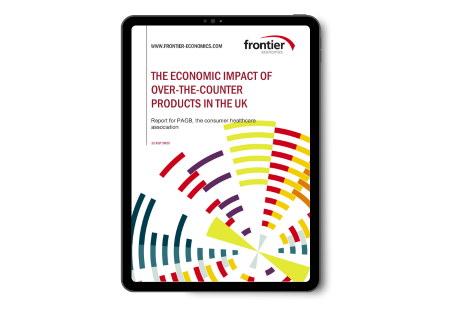
To mark International Self-Care Day 2023, we launched a groundbreaking report providing the most up-to-date figures to quantify the economic value of the over-the-counter (OTC) sector. The report, undertaken by Frontier Economics and commissioned by PAGB, showcases the current and potential impact of OTC usage in the UK.
Digital health tools are key enablers of self-care. During
the pandemic, public health messages encouraged
people to self-care for self-treatable conditions to both
minimise the spread of COVID-19 and reduce avoidable
pressures on NHS services. These messages were
accompanied by an acceleration in the development and
use of digital and remote healthcare services that
provide support and care for people without requiring
face-to-face interactions.

You can share the results from our latest report 'Taking care, Taking control: Self-Care Attitudes 2022' on social media by using these visuals.
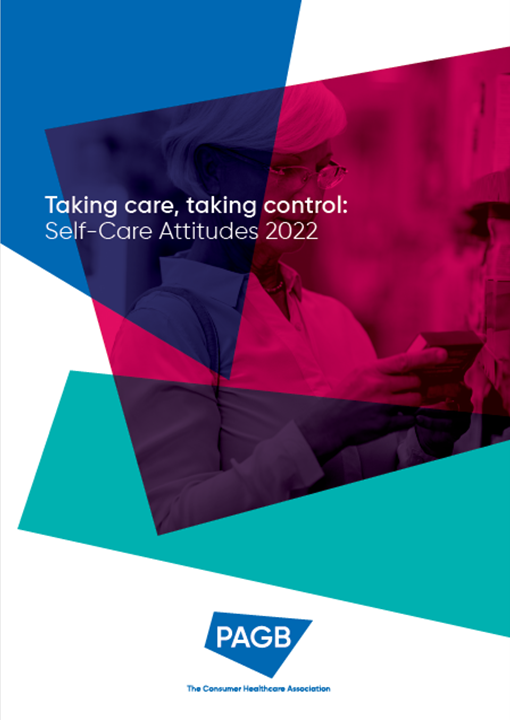
PAGB’s latest report Taking care taking control: Self-care attitudes 2022 details the findings from a UK-wide survey of more than 2,000 adults across the UK. We asked people about their attitudes to self-care and accessing health services. Our findings show that the public want to embrace self-care but need the tools and infrastructure to help them to do this.
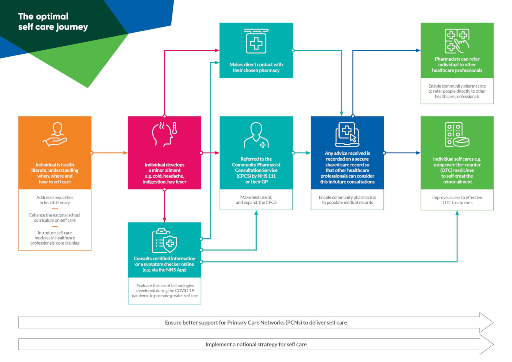
This briefing sets out how self care should be fully embedded in the primary care pathway, ensuring that people are able to access the right care and support, from the right healthcare professional, at the right time. The optimal self care journey defined in the briefing is based on Realising the potential: developing a blueprint for a national self care strategy for England.
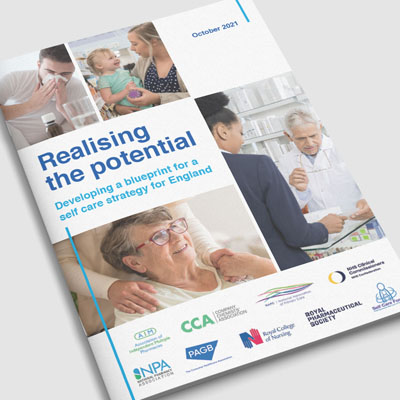
Together, NHS Clinical Commissioners, RCN, NAPC, NPA, CCA, AIMp, RPS, Self Care Forum and PAGB published 'Realising the potential. Developing a blueprint for a self care strategy for England' in October 2021. Find out more at our dedicated microsite www.selfcarestrategy.org.

Find out how self care attitudes shifted during the course of the COVID-19 pandemic. Has the shift towards self care in the wake of the COVID-19 pandemic that was revealed in our 2020 survey been sustained, or is there evidence of a drift back towards pre-pandemic behaviours?
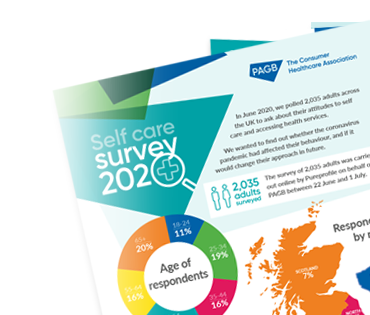
More than 2,000 UK adults were surveyed about their attitudes to self care and how they've changed as a result of the coronavirus pandemic. Our survey found that A&E and GP services are less likely to be the first port of call for those with self-treatable conditions in future while more people will choose to care for themselves if they can.
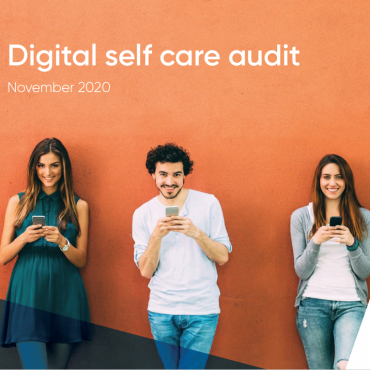
Findings from PAGB's audit of online NHS support for self care. We make recommendations for how recent advancements across digital platforms and remote services during the pandemic can be harnessed to lock-in a longer-term shift towards self care.
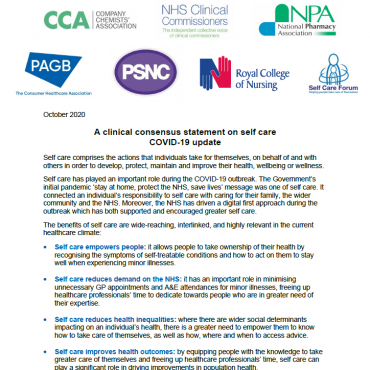
An updated statement on self care reflecting the impact of COVID-19 and highlighting the importance of policies that will embed self care behaviours into the NHS and people's lives. Signed by PAGB, NHS Clinical Commissioners, Royal College of Nursing, National Pharmacy Association, PSNC, Company Chemists Association, Self Care Forum

As the NHS begins to look at the next phase of its response to COVID-19, PAGB has identified a huge opportunity to drive forward the innovation that we have seen in the past few months which has helped
- Enhance the role of community pharmacy
- Reduce pressure on GP services and enable healthcare professionals to provide care to those who need it most
- Accelerate the adoption of a digital first approach
In this report PAGB sets out the importance of self care in the context of COVID-19; Positive steps the NHS, and particularly pharmacy, has taken which can be harnessed for self care; and the steps that can be taken to embed self care now and for the long term.
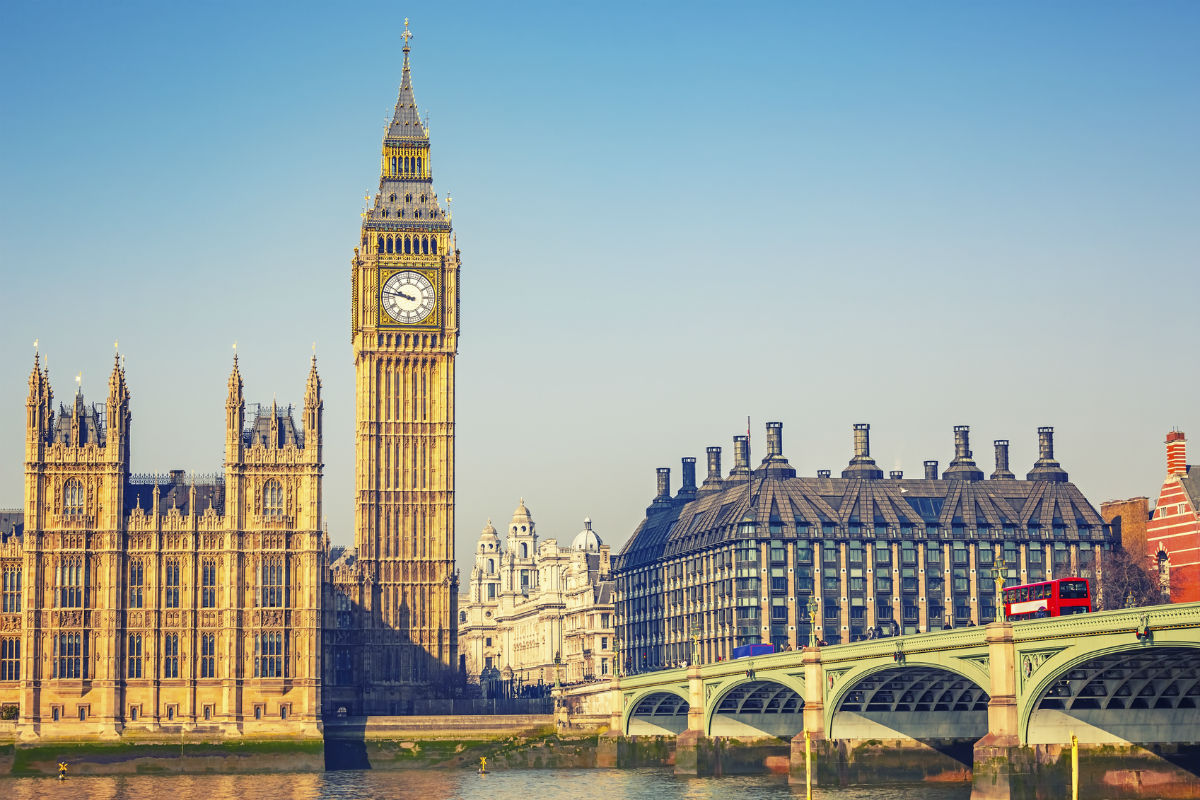
PAGB submitted written evidence to the House of Commons Health and Social Care Select Committee’s inquiry into Delivering Core NHS and Care Services during the Pandemic and Beyond. In our submission, we identify a unique opportunity to cement positive changes in the way people use NHS resources for the longer-term sustainability of the NHS.

Report of a parliamentary roundtable meeting to explore the role of healthcare professionals in self care, chaired by Sir George Howarth MP on Tuesday 22 October 2019 . The report summarises the key themes discussed, alongside recommendations for actions that can be taken by the Government to support a behavioural and cultural shift towards self care.

Joint statement on self care from PAGB, NHS Clinical Commissioners, Royal College of Nursing, National Pharmacy Association, Company Chemists Association, Self Care Forum
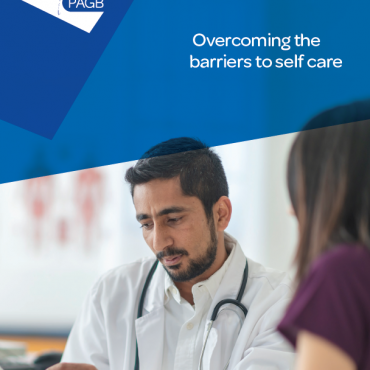
PAGB has identified key policy initiatives which, if introduced as part of a national strategy, would support and empower more people to self care. We look at the potential barriers to implementation and highlight case studies where local innovation has overcome these.
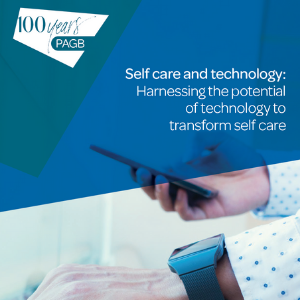
Digital technology is already supporting people to manage their own health but much more could be done to apply these digital solutions to support and increase self care. In this report, we look at ways in which digital technology is already supporting self care across the world, and make recommendations for action.

This report explores the relationship between smoking cessation spend and outcomes across England. Our analysis of the data, mapped to local authority area, reveals persistent variation in smoking-related health outcomes across England and inconsistency in investment in smoking cessation services.
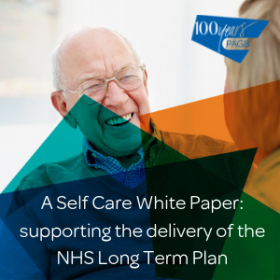
PAGB's White Paper sets out a series of policies which must be implemented to create and embed a culture of self care including supporting people to manage their own health, tackling health inequalities and reducing pressures on NHS services. Read more on our policy pages.
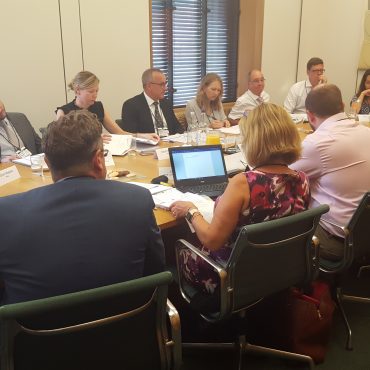
A summary report of a roundtable meeting in Parliament chaired by Martin Vickers MP, and jointly hosted by PAGB, RCGP and the Self Care Forum. Representatives from NHS organisations and other health agencies met on 18 July 2018 to discuss key priorities for a national self care strategy.
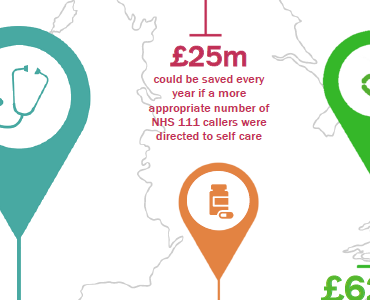
PAGB interim White Paper outlining recommendations for policies that we believe will unlock the potential for self care.

Report of a parliamentary roundtable meeting on 19 June 2018 held to explore evidence-based smoking cessation services in light of recent tobacco control policy developments. This paper sets out a number of recommendations for action across both national and local organisations.
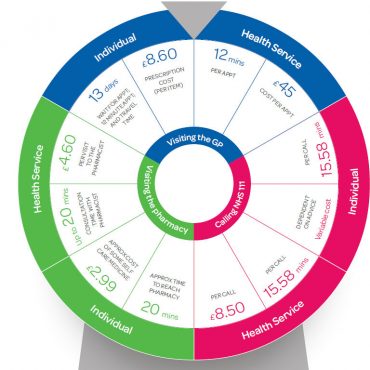
Saving time, reducing demand infographic developed by PAGB in partnership with the Royal College of General Practitioners and the Self Care Forum.
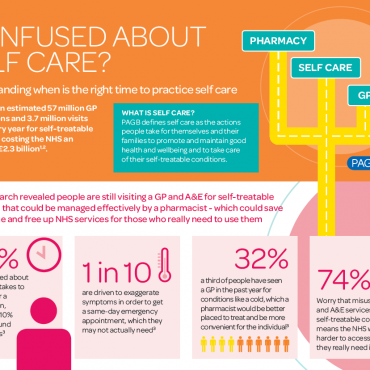
Findings from a survey of 2000 adults indicate that people's self care behaviour is linked to confidence in health professionals and their understanding of when and how to self care.
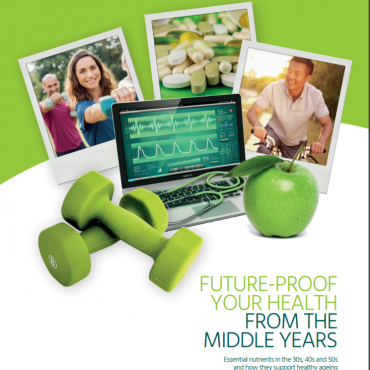
A new report by the Health and Food Supplements Information Service (HSIS) reveals that middle-aged people in the UK are still not making simple, practical changes early enough which could help protect against poor quality of life and ill health in the future.
Includes essential nutrients in the 30s, 40s and 50s and how they support healthy ageing.
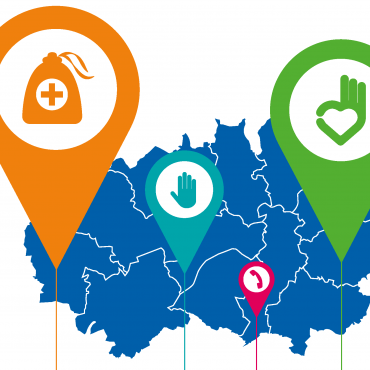
A green paper published by PAGB has revealed several areas where the NHS in Greater Manchester could do more to promote self care for self-treatable conditions, helping to reduce the pressure on local health services and drive cost savings in the region.
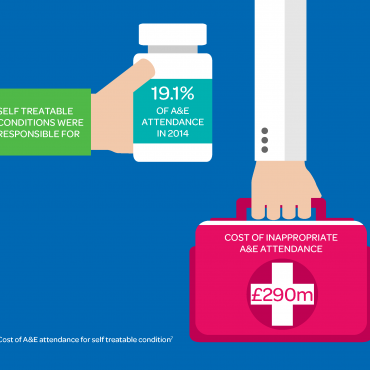
How could a self care strategy help reduce waste in the NHS? Equipping people with the knowledge to self care and self treat commonly occurring conditions could help reduce areas of waste, freeing up valuable resources...
Also available, a one page infographic
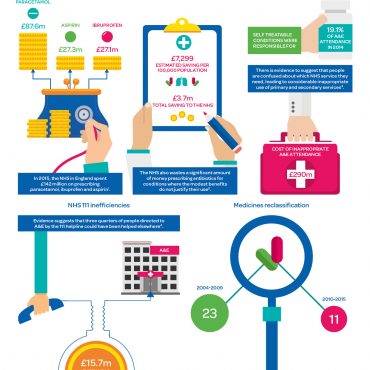
How could a self care strategy help reduce waste in the NHS? View our one page infographic highlighting 5 key areas where savings could be made.
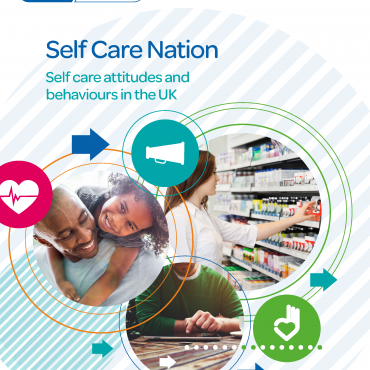
Based on research commissioned by PAGB, this report explores current attitudes towards self care and how this relates to people’s behaviour when managing self-treatable conditions. It includes recommendations on how to bridge the disconnect between the two.
See also our one-page infographic highlighting the key findings.
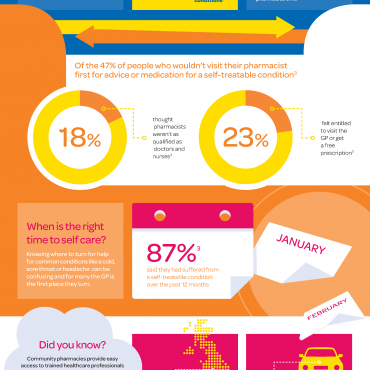
Read a one page summary highlighting the findings from PAGB’s Self Care Nation report on attitudes and behaviours in self care.
See also our report exploring current attitudes towards self care and how this relates to people’s behaviour when managing self-treatable conditions.
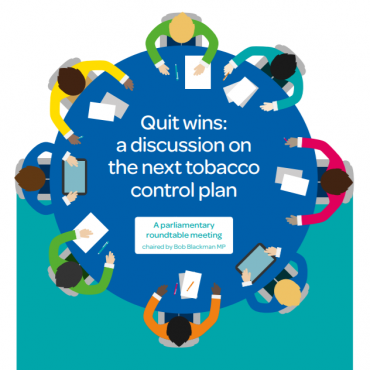
Report of a parliamentary roundtable (September 2016) which brought together commissioners, providers, charities and other experts in Stop Smoking Services, as well as parliamentarians to understand the key challenges that exist to making further reductions in smoking rates, and what can be done to overcome them.
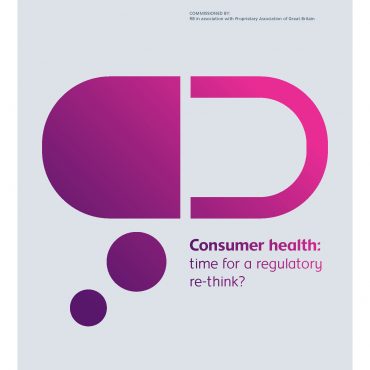
This report by RB in association with PAGB, written by the Economist Intelligence Unit looks at the changing healthcare environment and the role self-care plays and efforts at regulatory harmonisation, the barriers they have encountered, and prospects for the future.
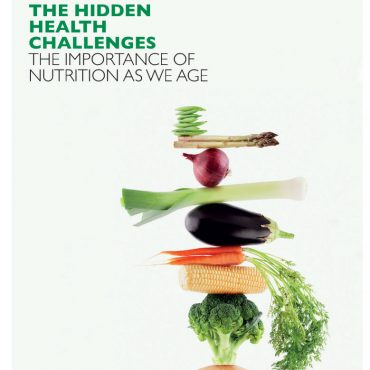
This report investigates the nutritional gaps which are putting over-50s at increased risk of poor health and explores the possible use of supplements to address this hidden health challenge.
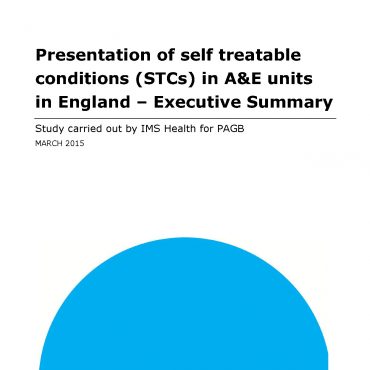
In an analysis carried out by IMS Health, it was estimated that self treatable conditions were responsible for 19.1% of attendances in England (2014), accounting for 3.7 million attendances at a cost of £290 million.
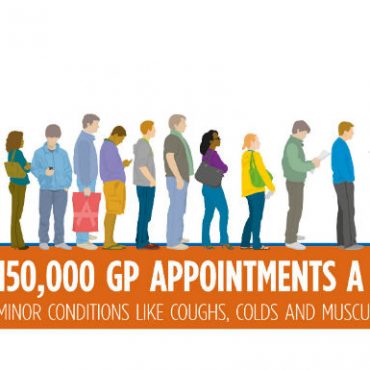
PAGB’s manifesto for self care outlines ways for the NHS to relieve pressures facing GPs and A&E departments. These include: implementing high profile national awareness campaigns to make people aware of when and how to self treat, providing consistent advice on where to access the right care, and through improving health literacy in children.
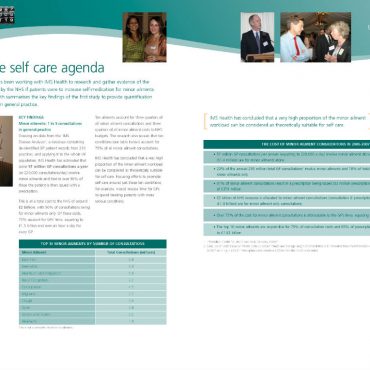
In an analysis carried out by IMS Health, it was estimated that minor ailments accounts for 18-20% of GP workload at a cost of £2 billion a year.